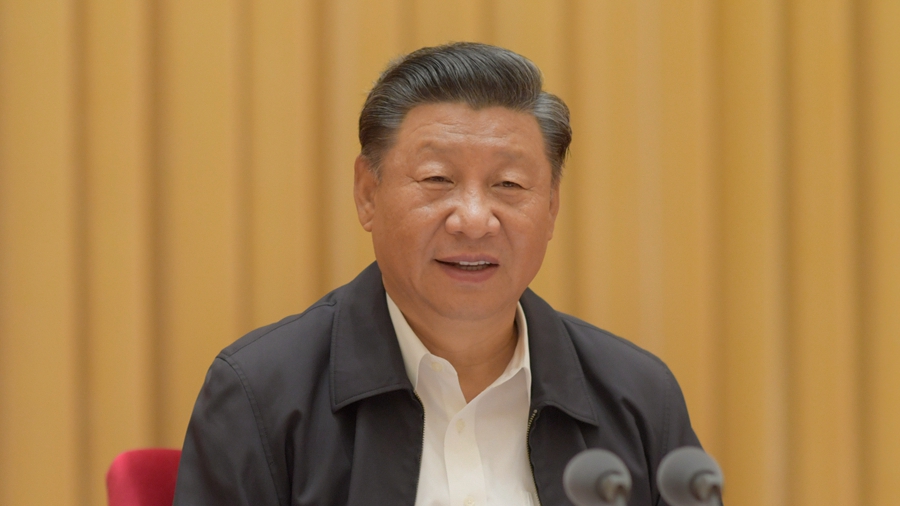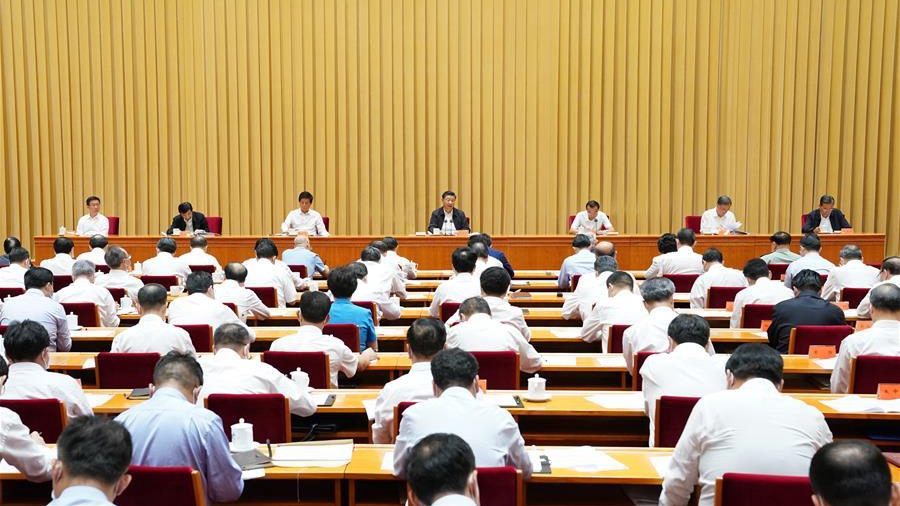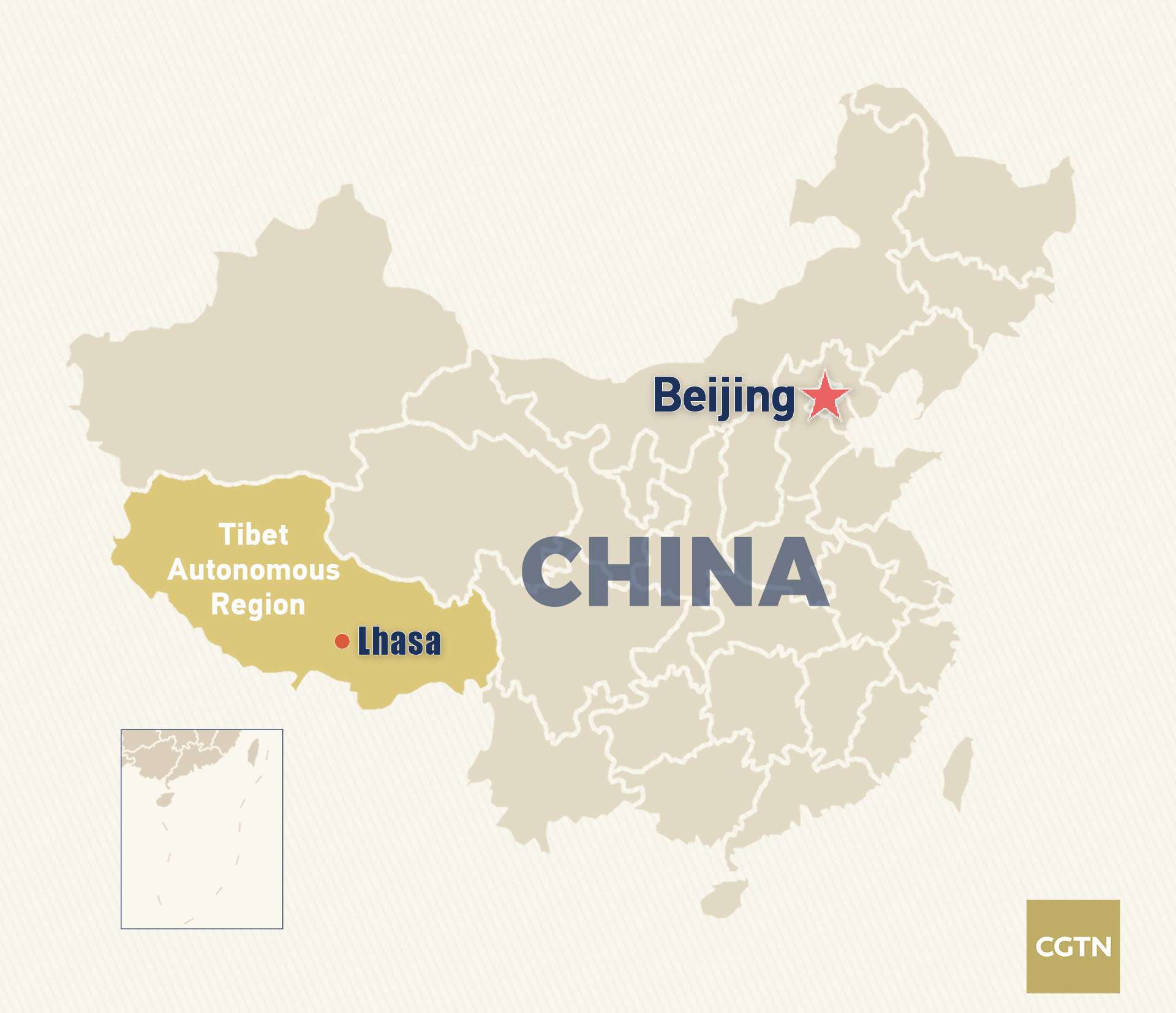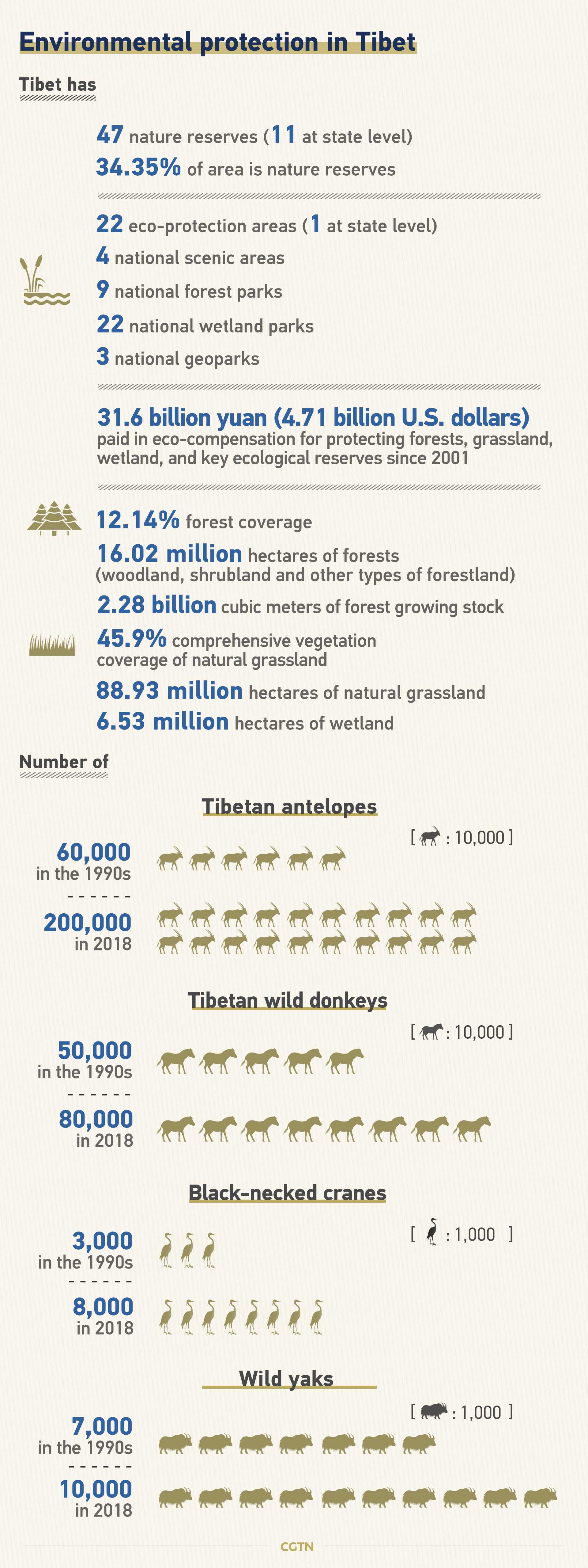00:34

China has mapped out policy directions for building a new modern socialist Tibet that is united, prosperous, culturally advanced, harmonious and beautiful.
As an inseparable part of China, the development of Tibet Autonomous Region has always been a priority for the Central Government.
Speaking at a two-day high-level meeting on Tibet work, which ended Saturday, Chinese President Xi Jinping gave guidance on Tibet-related work in the new era, calling for further efforts to ensure national security and enduring peace and stability, steadily improve people's lives, maintain a good environment, solidify border defense and ensure frontier security in Tibet.
Read more:
Tibet: Facts and figures over past 60 years
From theocracy to democracy: A glimpse of religious freedom and reform in Tibet

Chinese President Xi Jinping speaks during a high-level meeting on development in southwest China's Tibet Autonomous Region, Beijing, China, August 29, 2020. /Xinhua
Chinese President Xi Jinping speaks during a high-level meeting on development in southwest China's Tibet Autonomous Region, Beijing, China, August 29, 2020. /Xinhua
Safeguard national unity, strengthen ethnic solidarity
As a border region, Tibet has long served as an important safety shield for the whole country. Meanwhile, more than 90 percent of inhabitants of Tibet are Tibetans.
Given that Tibet's security and stability are closely related to the overall development of the whole nation, Xi stressed that work related to Tibet must focus on safeguarding national unity and strengthening ethnic solidarity.
More education and guidance should be provided for the public to mobilize their participation in combating separatist activities, Xi noted, adding Tibetan Buddhism should be guided in adapting to the socialist society and should be developed in the Chinese context.

Advance high-quality development
Ecological protection has always been a priority in Tibet's development. Nature reserves accounted for about 34.4 percent of the autonomous region's total land area. The forest coverage rate has been elevated to 12.14 percent across the region.
While stressing the implementation of the new development philosophy, Xi noted that efforts should be sped up to advance high-quality development.
He termed the protection of the Qinghai-Tibet Plateau's ecological environment as the greatest contribution to the survival and development of the Chinese nation and emphasized that scientific research should be further advanced on the plateau.

Consolidate poverty alleviation achievement
As of January this year, Tibet has basically eradicated absolute poverty with a total of 628,000 people and 74 county-level regions lifted out of poverty, according to data from the autonomous region's government.
Addressing development imbalances and inadequacies, Xi underlined the need to consolidate the achievements in poverty alleviation and to improve people's livelihood.
He highlighted the importance of policy support, infrastructural development, employment promotion and urgently-needed personnel training for the region's future social and economic development.